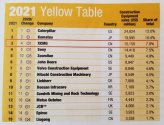I can understand property owners wanting to avoid the property tax, but why would local governments oppose it? The local governments should get enormous revenues every year from the tax, so why aren't they the biggest supporters of the new levy? I am asking this not as a challenge, but because I really want to know.Property taxes are just too difficult to get implemented. There is a fierce lobbying by various interests and Local Govs against such taxes. Keeping in mind that this would also affect the poor/middle class people the most, you may understand how difficult it would be for the Central Gov to push for it.
Too difficult as there are too many entrenched interests benefitting by higher property prices.
The property owners would lose a bit, but not too much if they sell before the prices fall. The anticipated drop in real estate values prompts another question: where will investment go now? To the stock market? Does China really want a bubble there?
I assumed the new property tax was tiered already. Was I wrong to assume this?A good way for the Central Gov to gain support would be for a tier system
poor people - no tax/extremely low tax
Middle class - low tax/normal tax
Rich/very rich - high/very high tax
(Separate system for companies)
This way the Gov would gain support among the people and directing their anger/opposition against the rich (a time-honoured tradition for Govs from around the world, trying to pass taxes)

